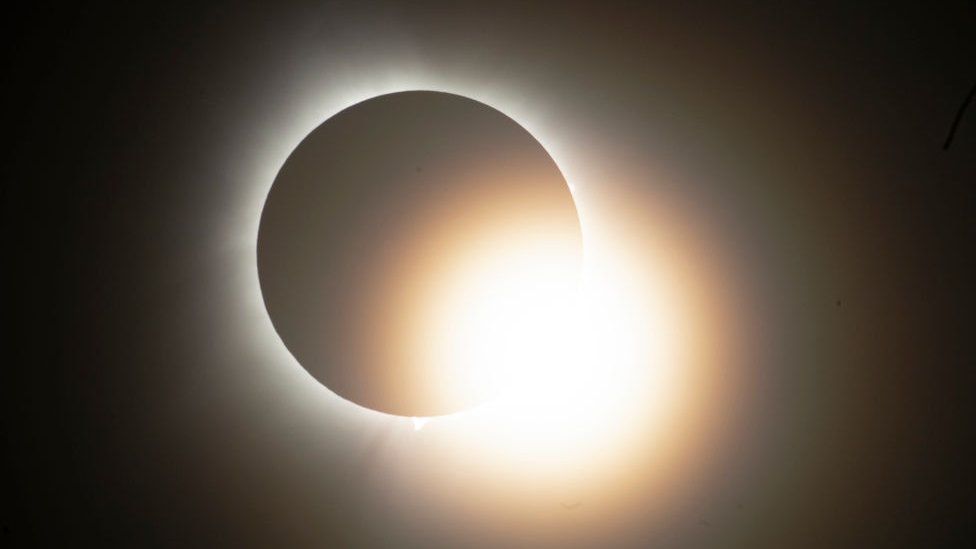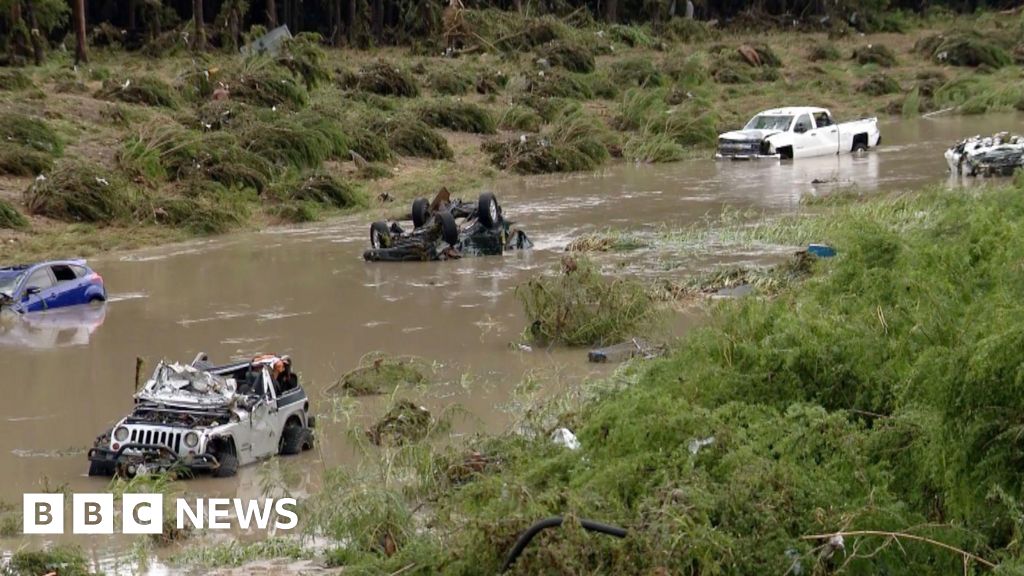ARTICLE AD BOX
 Image source, Getty Images
Image source, Getty Images
Experts warned of the dangers of looking directly at the Sun - including its edges
By James FitzGerald
BBC News
Monday's total eclipse in North America was followed - as eclipses around the world often are - with a surge of web searches for what to do about sore eyes.
Before the event - during which the Moon obscured the Sun - experts warned that it was dangerous to look at the Sun with the naked eye. Instead, they recommended using safety glasses.
But any discomfort now is unlikely to suggest lasting harm to your sight, and typically resolves naturally on its own, ophthalmologists say.
Of more concern would be a phenomenon that is actually painless. Solar retinopathy is a vision impairment that can happen after looking at the Sun for too long, sometimes only for a matter of seconds.
The condition occurs when there is damage to the retina, which is an important layer of tissue lining the inside of the back of the eye. The retina has light-sensitive cells that convert images before they are relayed to the brain.
But the retina does not have pain nerves, meaning that any soreness is unlikely to be a signal of retinopathy, the American Academy of Ophthalmology points out.
Symptoms of the condition may include blurry vision or blind spots.
As to why it happens - the human eye can only withstand a certain "intensity" of light, explained Prof Bainbridge, chair of retinal studies at University College London.
Looking directly at the Sun - even the outline of the Sun obscured by the Moon - could cross that threshold.
Prof Bainbridge told the BBC that anyone experiencing that issue should seek medical care - but was quick to reassure that lasting damage was by no means certain.
Other experts agreed that this is relatively uncommon. There were about 100 reports across the US and Canada following the 2017 eclipse, according to a report last year by the American Astronomical Society (AAS).
Prof Bainbridge, who is also an ophthalmologist at London's Moorfields Eye Hospital, recalls seeing a number of patients with these symptoms after the UK's total eclipse in 1999.
"Typically things improved gradually, although some people did have some lasting harm," he said. There is no treatment, which is why the focus is on prevention.
But Monday's total eclipse posed hidden risks, eye care professionals told the BBC's US partner, CBS News.
The fact that the Sun was largely blocked meant that people did not have a "natural sense of discomfort and aversion to the brightness", said ophthalmologist Jason P Brinton.
Added to this was the fact that many people in North America experienced a partial eclipse - less spectacular but potentially still damaging to the eyes.
A separate issue - keratopathy - refers to a "burning" effect on the cornea, the transparent front part of the eye.
However, this does not typically arise from brief glimpses at the Sun during an eclipse, according to Prof Bainbridge.
It's caused by more prolonged exposure to bright light, typical for welders or those experiencing what is known as snow blindness.
As with retinopathy, this condition usually heals naturally.
If you have symptoms such as headaches after the eclipse, it is also possible that you are suffering what Prof Bainbridge calls a secondary effect.
These can result from eye strain - caused by trying to focus on a distant object for too long. Again, this is likely to resolve itself over time.

 1 year ago
108
1 year ago
108








 English (US) ·
English (US) ·